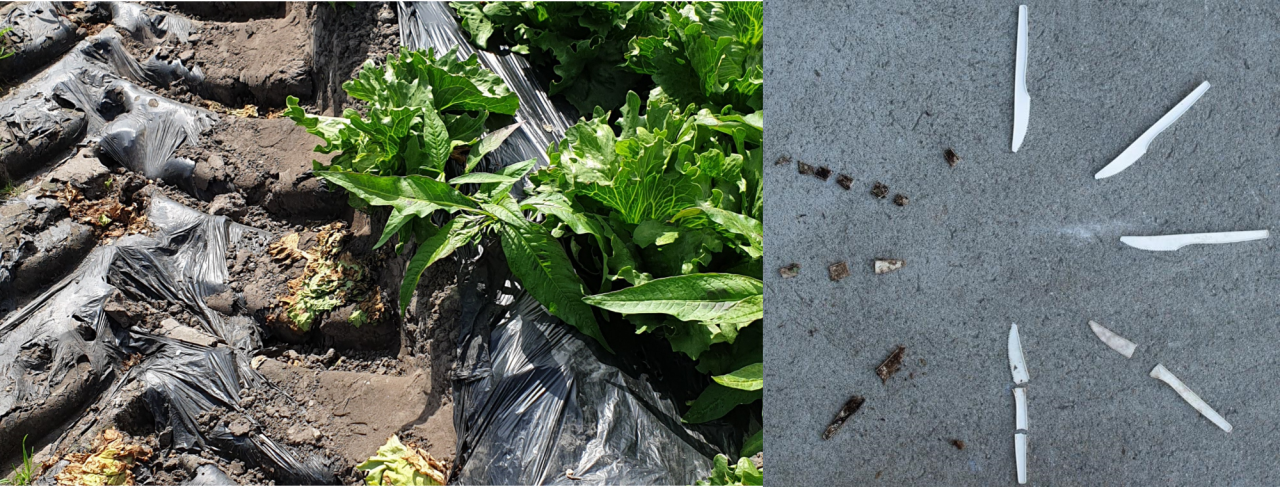Life cycle assessment (WP4)

Photos: Martin Haarr (Agri Råd), Pierre-Adrien Rivier (NIBIO)
Biodegradable plastics are promoted as an environmentally friendly alternative to conventional non-degradable plastics. But is degradable plastic really more environmentally friendly than non-degradable fossil alternatives? Is littering, and its effects on the environment, actually avoided?
WP4 is led by Irmeline de Sadeleer at the Norwegian Institute for Sustainability Reasearch (NORSUS). The main contributors to this WP are Anna Woodhouse, Kari-Anne Lyng and Irmeline de Sadeleer.
Life cycle analysis (LCA) is a method used to quantify the environmental impacts of a product throughout its life cycle. Emissions from production, transport, use and waste management are included.
By identifying products with the same function, it is possible to compare the environmental performance over the life cycle of products, and avoid greenwashing e.g. making choices that only improve the environmental performance in one or a few parts of the value chain.
In DGRADE, NORSUS has worked to gain knowledge about how environmentally friendly biodegradable plastics are compared to other alternatives by using LCA, and which areas of application biodegradable plastics are suited for. The LCA methodology does not currently include environmental impacts from littering, but a lot of work is being done to make this possible, to which NORSUS's work has also contributed.
Three different cases have been studied:
- The use of biodegradable mulch film in agriculture compared to the use of fossil plastic mulches
- The use of biodegradable food waste bags compared to other solutions for food waste collection
- The use of biodegradable plastic for cutlery and drinking glasses in the catering industry, compared to other disposable and reusable solutions.
The analyses of the cases are based on data provided by the other work packages.
The following deliverables are outcomes of this work package:
- A report describes the status of the work on littering in LCA, and gives tips for designing products to avoid littering: Integration of plastic littering in LCA methodology and eco-design tips for the avoidance of littering
- An article (de Sadeleer & Woodhouse, 2023) has also further developed a method to account for plastic litter from agricultural plastics, which can be added to LCA analyses: Environmental impact of biodegradable and non-biodegradable agricultural mulch film: A case study for Nordic conditions
- An article (Lyng, 2023, in print) has looked at the effect of using different bags for handling food waste for biogas production and compost.
